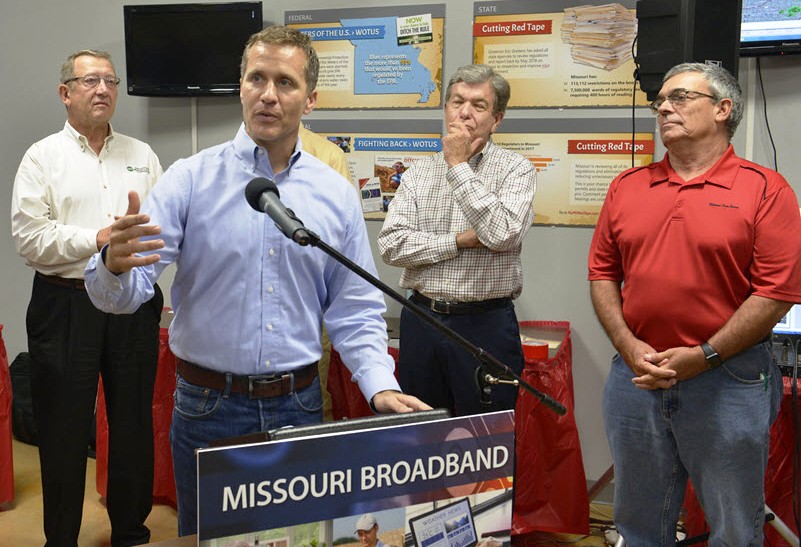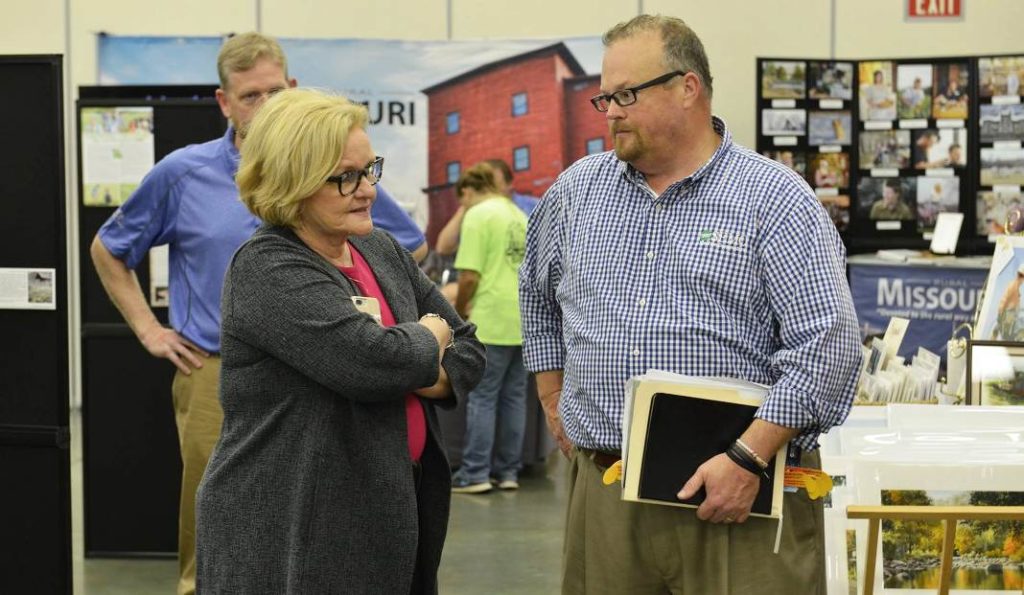
Electric cooperatives in Missouri are urging U.S. senators to guide more federal dollars toward their efforts to build broadband for their members and improve the quality of life in rural America.
“Two-thirds of the rural areas of the state don’t have adequate broadband. It is a serious situation in Missouri,” said Barry Hart, CEO of the Association of Missouri Electric Cooperatives.
“Some people think rural areas do not need the same speed cities need. That is false. We have courthouses, healthcare clinics, farms, businesses, schools that need high-speed internet,” said Hart.
Hart and other electric co-op leaders in Missouri emphasized that need Aug. 17 at public events with Sen. Claire McCaskill, D-Mo., Sen. Roy Blunt, R-Mo., Gov. Eric Greitens, and other federal and state leaders.
“If we do it right, ultimately we will bring high-speed internet to members, which will lead to economic opportunities and learning opportunities for our students and businesses,” said Sean Vanslyke, CEO of SEMO Electric Cooperative in Sikeston. The co-op will hook up its first internet customer to GoSEMO Fiber before January 2018.
At a roundtable hosted by McCaskill, several co-op leaders “mentioned the challenges we face and how these opportunities will keep rural Missouri and rural America vital in the U.S. economy,” said Jim Bagley, CEO of United Electric Cooperative in Maryville.
“We talked about the role broadband plays in rural medicine and education and how important it is to support our students and local schools. They are the lifeblood keeping rural communities intact.”

United has linked 4,500 of its 10,000 meters with broadband fiber and has more than 5,000 subscribers. SEMO is one of seven co-ops with plans to provide broadband service to homes in the state. Of Missouri’s 40 distribution co-ops, 22 have completed feasibility studies.
“They realized nobody else is going to do it,” said Hart, “and their rural community is going to suffer if they don’t do it.”
Co-Mo Electric Cooperative in Tipton was the first co-op to deliver broadband in Missouri without federal funds. It just completed fiber optics to all of its members.
Still, the linchpin is capital for these projects.
“Without federal funding, it is very difficult to get the economics to do this in rural areas,” Hart said. Successful bids for funds from the Federal Communications Commission will be key, he said.
In Missouri, a 10-year “reverse auction” of $650 million from the FCC’s Connect America Fund II for rural broadband will begin in 2018. Electric co-ops and other potential providers can bid for funds declined by AT&T, the incumbent provider, to build broadband for unserved or underserved residents.
Missouri is receiving the largest portion of reverse auction funds that total about $2 billion nationwide. The FCC collects money in the Connect America Fund through fees on monthly telephone bills.
Ralls County Electric was one of the first co-ops to get federal stimulus money to launch broadband in 2010. The New London co-op completed deployment to all of its 6,000 meters in 2014 with $10 million in a CAF grant, a $10 million loan and $900,000 from the state. Now through its fiber subsidiary, Ralls Technologies, the co-op is providing broadband beyond its electric service area.
“For areas underserved and those with no active providers, that funding is just critical,” said CEO Lynn Hodges. “It was critical in our plan with just four people per mile.”
Cathy Cash is a staff writer at NRECA.